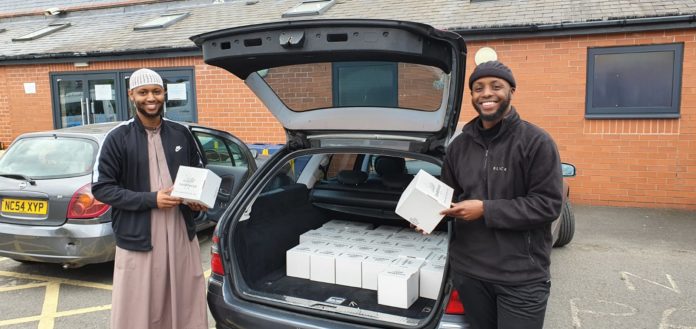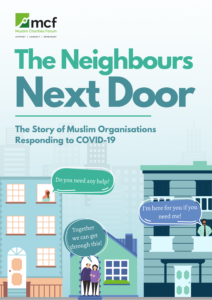A new report has revealed the huge amount of work undertaken by Muslim charities to help the needy during the coronavirus pandemic.
The Neighbours Next Door, written by the Muslim Charities Forum (MCF), identified 194 Muslim charities attending to a whole array of needs from ensuring that food and medicine get to those in need to supporting victims of domestic violence, stranded students and single parents.
According to the report, many mosques which were forced to close because of COVID-19 turned into centres to support the local community, such as organising a food bank or providing training to volunteers.
Funds were also distributed to those who have been hit hardest financially by the
virus. For example, the National Zakat Foundation, a charity that provides grants to individuals nationwide, has seen a spike in applications and is currently receiving one application every 15 minutes.
With the unfortunate loss of lives, many charities also took on the task of providing burial and bereavement support.
Key workers such as NHS staff have been gruelling away working long shifts in hospitals, and so various charities organised themselves to support them in times of great strain on their lives. For example, Ummah Welfare Trust committed large funds (reportedly to be £1 million) in supplying PPE supplies to the NHS. Masks, coveralls and gloves were also delivered to nurses and other frontline staff.
Subscribe to our newsletter and stay updated on the latest news and updates from around the Muslim world!
Fadi Itani, the CEO of MCF, said: “Our report ‘The Neighbour Next Door’ highlights how, in this time of crisis, the Muslim community up and down the UK have come out in mass to support their neighbours in their time of need, no matter their faith, their race, their migrant status, their health or their wealth.
“This pandemic has stopped the world in its tracks and has shaken all of humanity. No nation has been left untouched by its damage, and the world stands as it does now, in a state of mourning and uncertainty about what the future may hold…
“We begin this report remembering the lives that have been taken these past few months and we hold the families of those who have lost loved ones in the UK and around the world close to our hearts and in our prayers. Together we can get through this, and this report is a testament to the power of coming together, pooling resources, and looking out for our neighbours.”
The report also identifies some of the challenges faced by organisations and local groups during the crisis, and recommends how any future response can be improved.
It says:
- The COVID-19 crisis period has been difficult for small/medium size community-based frontline charities. They’re financially exposed and vulnerable, placing their valuable work at risk.
- BAME-led charities are not accessing institutional funding unlike their counterparts in the mainstream sector. Indeed, only 16% of Muslim-led local charities have so far received institutional funding for their COVID-19 response.
- The sector would benefit from greater collaboration as this will undoubtedly allow skill sets to be shared, greater reach and more importantly the exchange of good practice.
- At the onset of the COVID-19 crisis in the UK, there was an outpouring of compassion from the public with a desire to volunteer and serve their communities during this unprecedented time leading to many voluntary sector organisations having long volunteer waiting lists. However, as the lockdown eases and individuals get back to work, the number of volunteers may fall despite the need to support the community not diminishing.
- The sector needs to celebrate the valuable contribution it makes without which many beneficiaries will be left unattended to, struggling in silence. There is unfair coverage of the sector which is often accused of malpractice or lengthy unfair investigations that are disproportionate.



















